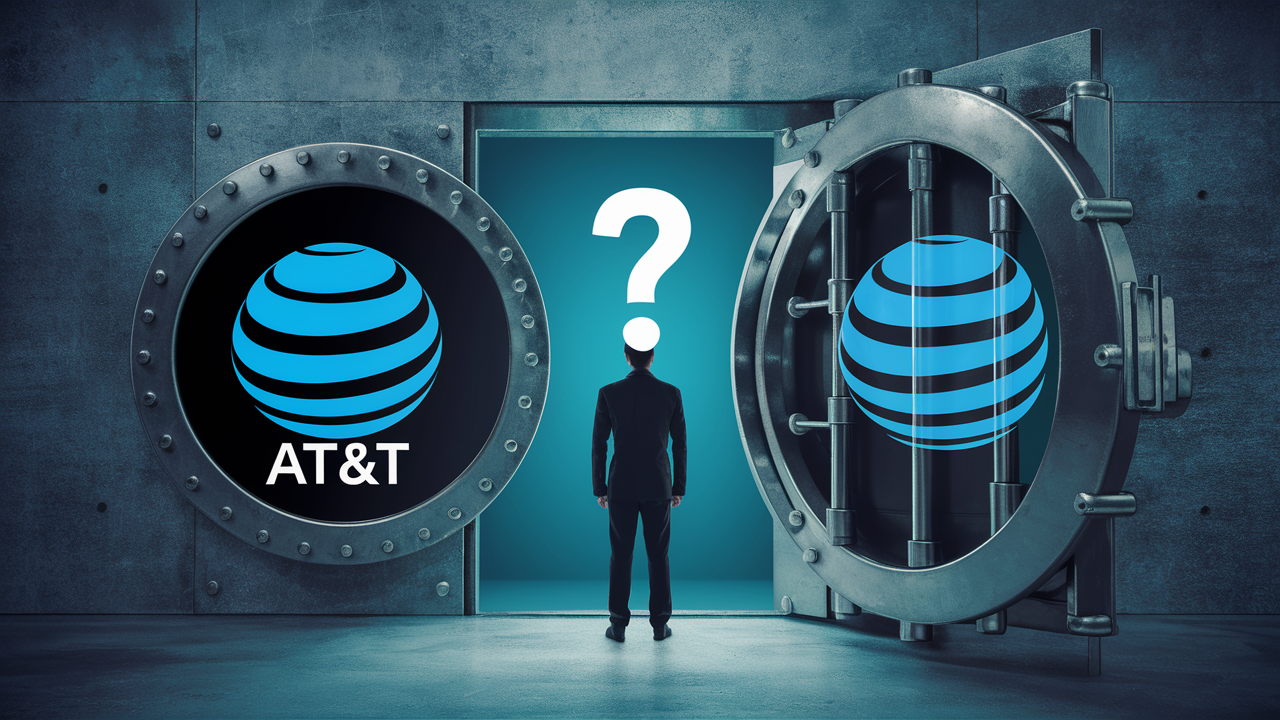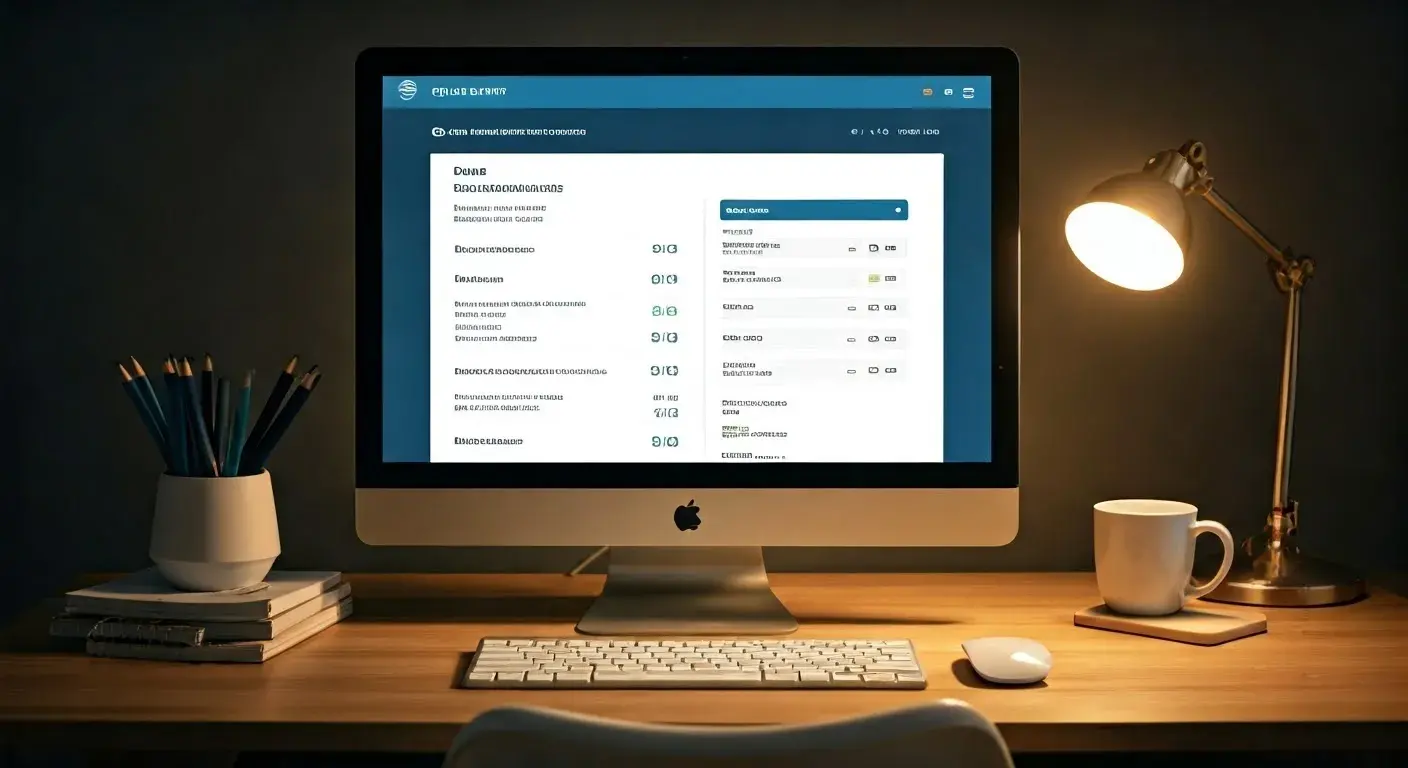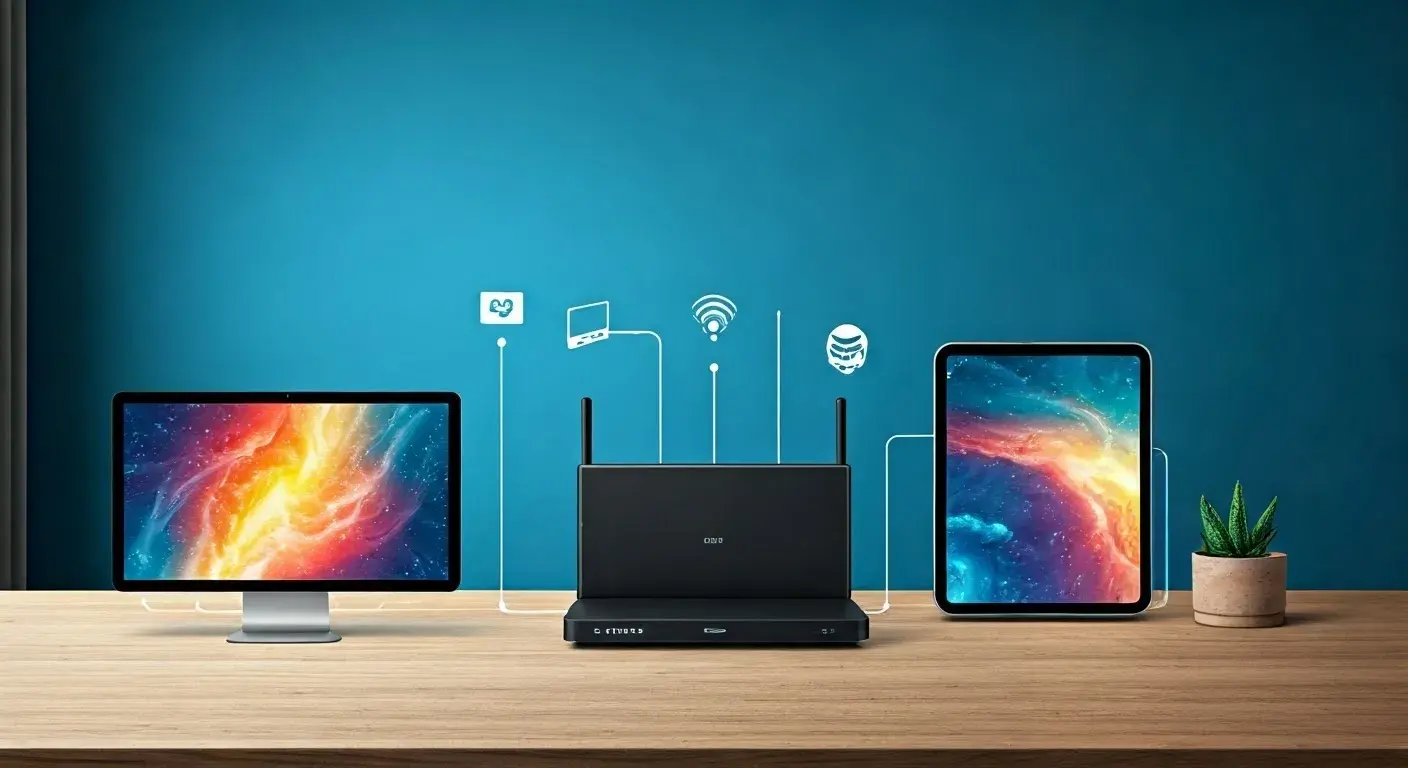Do I need credit to open an ATT account?

Opening an AT&T account, whether for mobile, internet, or TV services, often brings up the question of credit requirements. This comprehensive guide clarifies precisely what you need to know about credit checks and alternative options for opening an AT&T account in 2025, ensuring you're well-prepared.
Understanding AT&T's Credit Requirements
The short answer to "Do I need credit to open an AT&T account?" is: it depends. AT&T, like most major service providers, uses credit checks to assess the risk associated with new customers. This helps them determine whether a security deposit will be required and what service plans might be available. The primary goal of a credit check is to gauge your history of managing financial obligations, which can indicate your likelihood of paying for ongoing AT&T services.
Why AT&T Performs Credit Checks
When you sign up for services that involve monthly billing, such as mobile phone plans, home internet, or U-verse TV, AT&T needs assurance that you will consistently pay your bills. A credit check provides a standardized way to evaluate this. It's a common practice across the telecommunications industry to mitigate financial losses from customers who might default on payments.
Factors Influencing Credit Requirements
Several factors influence whether you'll need to undergo a credit check and what the outcome might be:
- Type of Service: High-value services, like premium mobile plans with the latest smartphones financed over time, often have stricter credit requirements than basic internet packages.
- Promotional Offers: Signing up for device installment plans or significant promotional discounts may trigger a more thorough credit assessment.
- New vs. Existing Customer: While new customers typically face credit checks, existing AT&T customers in good standing might have an easier time adding new services.
- Location: While less common, some regional variations in credit assessment practices might exist.
Credit Score Thresholds and What They Mean
AT&T doesn't publicly disclose exact credit score cutoffs, as these can fluctuate based on their internal risk assessment models and current market conditions. However, general credit score ranges provide a good indication:
| Credit Score Range | Likely Outcome | Notes |
|---|---|---|
| Excellent (750+) | Account approval with no security deposit. Access to all plans and promotions. | You are considered a very low-risk customer. |
| Good (680-749) | Account approval likely, potentially with no security deposit. Access to most plans and promotions. | You have a solid history of managing credit responsibly. |
| Fair (620-679) | Account approval possible, but a security deposit may be required. Some plans or promotions might be restricted. | You may have had minor credit issues in the past. |
| Poor (<620) | Account approval is less likely without alternatives. A significant security deposit is almost certain if approved. May require a co-signer or prepaid options. | You have a history of significant credit problems. |
It's important to remember that your credit score is just one part of the equation. Your credit report, which details your payment history, credit utilization, length of credit history, and types of credit used, also plays a significant role. For instance, a person with a 650 score but a recent history of missed payments might face more hurdles than someone with the same score but a longer, consistent payment record.
The AT&T Credit Check Process Explained
When you apply for AT&T services, the credit check process is typically straightforward. Understanding what happens can alleviate concerns and help you prepare.
How AT&T Pulls Your Credit
AT&T works with major credit bureaus (like Experian, Equifax, and TransUnion) to obtain your credit report. When you authorize a credit check during the application process, AT&T will request a "soft" or "hard" inquiry, depending on the service and your situation.
Soft vs. Hard Inquiries
- Soft Inquiry: This is often used for initial eligibility checks or when you're reviewing your own credit. It does not impact your credit score. Many companies, including AT&T for certain pre-qualification steps, might use soft inquiries.
- Hard Inquiry: This occurs when a lender or service provider checks your credit to make a decision on a new account. Applying for a new phone contract with installment billing, for example, will likely result in a hard inquiry. Hard inquiries can slightly lower your credit score temporarily.
AT&T's policy is to perform a hard inquiry when you are applying for a new line of service, especially if you intend to finance a device. This is standard practice for any service requiring a credit agreement.
What Information is Reviewed?
Beyond just the score, AT&T's credit assessment will look at:
- Payment History: How consistently you've paid your bills on time for other credit accounts. Late payments, missed payments, and defaults are red flags.
- Credit Utilization: The amount of credit you're currently using compared to your total available credit. High utilization can indicate financial strain.
- Length of Credit History: A longer history of responsible credit use is generally viewed favorably.
- Credit Mix: Having a mix of credit types (e.g., credit cards, installment loans) can be beneficial.
- New Credit: Numerous recent credit applications or newly opened accounts can sometimes be seen as a higher risk.
- Public Records: Information like bankruptcies, liens, or judgments will significantly impact the assessment.
What Happens if You Don't Meet the Requirements?
If your credit check doesn't meet AT&T's standards for unsecured service, you'll typically be presented with a few options:
- Security Deposit: This is the most common requirement for customers with lower credit scores or limited credit history. The deposit acts as a form of collateral for AT&T. The amount can vary significantly, often ranging from $50 to several hundred dollars, depending on the service plan and your credit assessment. For example, a deposit for a high-end smartphone plan might be higher than for a basic internet service.
- Prepaid Services: AT&T offers prepaid options (like AT&T PREPAID) that do not require a credit check. You pay for service in advance, eliminating the risk of non-payment for AT&T. This is an excellent alternative for those with poor credit or who prefer not to undergo a credit check.
- Co-signer: In some cases, you might be able to add a co-signer with good credit to your application. The co-signer agrees to be responsible for the account if you fail to pay. This is less common for individual mobile plans but can sometimes be an option for family plans or business accounts.
- Alternative Identification: While not a direct substitute for credit, providing valid identification and proof of address is always required.
AT&T is generally transparent about these options if your initial application is flagged due to credit. You will usually receive a notification detailing why you were not approved for standard service and what alternatives are available.
Alternatives if You Have Limited or No Credit
Many individuals find themselves needing to open an account with limited or no credit history. This is particularly common for young adults, recent immigrants, or those who have avoided traditional credit. Fortunately, AT&T provides viable alternatives.
AT&T PREPAID: The Credit-Free Solution
AT&T PREPAID (formerly Cricket Wireless or GoPhone) is AT&T's primary offering for customers who want to avoid credit checks and security deposits. This service operates on a pay-as-you-go or monthly plan basis, where you purchase service upfront.
How AT&T PREPAID Works
- No Credit Check: The biggest advantage is that no credit check is required. Anyone can sign up.
- Prepaid Plans: You choose a monthly plan based on your needs for talk, text, and data. Plans often include unlimited talk and text, with varying data allowances.
- Bring Your Own Device (BYOD): You can often bring your own compatible phone to the AT&T PREPAID network, saving on device costs.
- Network Coverage: AT&T PREPAID uses the same robust AT&T network, so you generally get comparable coverage to postpaid AT&T services.
- Flexibility: You can change plans or cancel service at any time without penalty.
2025 Statistics: Prepaid mobile services continue to grow, with projections indicating a 5-7% annual growth rate in the US market through 2025, driven by consumers seeking cost savings and flexibility. AT&T PREPAID is a significant player in this segment.
Example Scenario: The College Student
Maria is a freshman in college. She needs a smartphone plan but has no credit history. She applies for a postpaid AT&T plan and is told she needs a $300 security deposit. Instead, she opts for an AT&T PREPAID plan with unlimited talk/text and 15GB of data for $40 per month. This allows her to stay connected without the financial burden of a deposit or the worry of a credit check.
Secured Credit Cards and Building Credit
If your goal is to eventually qualify for postpaid services with AT&T or other providers without a deposit, building a positive credit history is key. A secured credit card is an excellent tool for this.
What is a Secured Credit Card?
A secured credit card requires you to make a cash deposit upfront, which then becomes your credit limit. For example, a $300 deposit typically gives you a $300 credit limit. You use this card like a regular credit card, and your payment activity is reported to the credit bureaus.
How to Use Secured Cards to Build Credit
- Apply for a Secured Card: Many banks and credit unions offer them.
- Use it Responsibly: Make small, manageable purchases that you can easily pay off.
- Pay Your Bill On Time, Every Time: This is the most crucial factor for building credit.
- Keep Utilization Low: Aim to use no more than 30% of your credit limit.
- Monitor Your Credit Report: After 6-12 months of consistent, responsible use, you should see an improvement in your credit score.
Once you've established a positive credit history (typically 12-24 months of on-time payments), you can re-evaluate your eligibility for AT&T's postpaid services. You may find that you no longer need to pay a security deposit.
The Role of a Co-signer
While less common for individual AT&T mobile accounts, a co-signer can be an option in specific situations. A co-signer is someone with good credit who agrees to be legally responsible for the debt if you fail to pay. This means their credit score is also on the line.
When a Co-signer Might Be Considered
- Family Plans: A parent might co-sign for a child's line on a family plan.
- Business Accounts: A business owner might co-sign for a new employee's company phone.
- Specific Promotions: Occasionally, a provider might offer co-signer options for certain high-value bundles.
It's essential for both parties to understand the implications. The co-signer must be comfortable with the financial responsibility and the potential impact on their credit if payments are missed.
Preparing Your Application for AT&T Services
Whether you have excellent credit or are exploring alternatives, proper preparation can streamline the application process for AT&T services.
Gathering Necessary Information
Regardless of your credit situation, you'll need to provide certain information. Having this ready will speed up your application:
- Proof of Identity: A valid government-issued photo ID (driver's license, state ID, passport).
- Social Security Number (SSN) or Individual Taxpayer Identification Number (ITIN): Required for credit checks. If you don't have an SSN, you may need to explore options for ITIN holders or non-credit-based services.
- Proof of Address: A recent utility bill, lease agreement, or other official document showing your current address.
- Contact Information: A valid phone number and email address.
- Payment Method: A credit card, debit card, or bank account for initial payments or setting up autopay.
Understanding Different Service Types and Their Requirements
The requirements can vary significantly based on the service you're signing up for:
Mobile Services (Postpaid)
- Device Financing: If you plan to buy a phone on an installment plan, a credit check is almost always required, and a good credit score is beneficial to avoid a deposit.
- BYOD (Bring Your Own Device): If you're bringing an unlocked phone and just need a service plan, the credit check might be less stringent, but still likely.
Home Internet (Fiber, DSL, Fixed Wireless)
- Installation: For most home internet services, AT&T requires a credit check. However, the deposit requirements are often lower than for mobile services, especially if you're not financing any equipment.
- No Equipment Financing: If you own your modem/router or are using AT&T's basic provided equipment without extra charges, the credit hurdle might be lower.
TV Services (U-verse, DIRECTV)
- Equipment Rental/Purchase: Similar to mobile, if you're getting new equipment or signing up for premium packages, a credit check is standard. Deposits can be required for lower credit scores.
- Bundles: Bundling services (e.g., internet and TV) might have slightly different credit assessment criteria.
Tips for a Smoother Application Process
- Check Your Credit Score Beforehand: Knowing your credit score and reviewing your credit report for errors can help you anticipate potential issues and choose the right path (postpaid vs. prepaid). Many free services allow you to check your score regularly.
- Be Honest and Accurate: Provide truthful information on your application. Discrepancies can lead to immediate rejection.
- Understand the Terms and Conditions: Read the fine print regarding contracts, fees, and deposit policies before you commit.
- Consider Online Applications: Applying online can sometimes be quicker and may offer pre-qualification tools that give you an idea of your eligibility before a hard credit pull.
- Have a Backup Plan: If you suspect your credit might be an issue, be ready to pivot to AT&T PREPAID or inquire about deposit options.
2025 Data Point: In 2025, approximately 65% of new mobile service activations with device financing involved a credit check, with around 20% of those applicants requiring a security deposit or opting for prepaid services due to credit limitations.
Managing Your AT&T Account and Building Credit
Once you have your AT&T service, whether it's postpaid or prepaid, there are ways to manage it effectively and, if applicable, continue building your creditworthiness.
Best Practices for Postpaid Customers
If you have a postpaid AT&T account, especially one where you financed a device or avoided a deposit due to good credit, responsible management is crucial:
- Pay Bills On Time: This is paramount. Set up automatic payments through your bank account or credit card to avoid late fees and negative marks on your credit report.
- Monitor Your Usage: Keep an eye on your data, talk, and text usage to avoid overage charges, which can increase your monthly bill unexpectedly. Use the AT&T app or website for easy monitoring.
- Review Bills Regularly: Check your monthly statements for any discrepancies or unexpected charges.
- Avoid Maxing Out Credit: If you financed a device, ensure you're making timely payments. Don't let your AT&T account become delinquent, as this will negatively impact your credit.
Leveraging AT&T PREPAID for Financial Discipline
For those using AT&T PREPAID, the service itself inherently promotes financial discipline:
- Budgeting: You pay for service in advance, making it easier to budget for your monthly phone expenses.
- No Debt Accumulation: Since you're not on a contract or financing a device, you won't accrue debt with AT&T.
- Transitioning to Postpaid: As you build a positive credit history (e.g., through secured cards or other credit lines), you can eventually transition from AT&T PREPAID to a postpaid plan if you desire more features or device financing options.
How AT&T Payments Can Impact Your Credit (Indirectly and Directly)
Postpaid Accounts:
- Direct Impact: If you have a postpaid account and pay your bills on time, this positive payment history is generally reported to credit bureaus by AT&T. This is a significant factor in building a good credit score. Conversely, late or missed payments will be reported and will hurt your score.
- Device Financing: When you finance a phone through AT&T, this is a form of installment loan. Your consistent payments on this loan are reported and contribute positively to your credit history.
Prepaid Accounts:
- No Direct Impact: Typically, AT&T PREPAID payments are not reported to the major credit bureaus. This means paying your prepaid bill on time won't directly improve your credit score. However, it helps you manage your finances and avoid debt, which indirectly supports your overall financial health.
Strategies for Improving Your Credit Score
If your goal is to qualify for AT&T's postpaid services without a deposit, focus on these credit-building strategies:
- Open a Secured Credit Card: As mentioned earlier, this is one of the most effective ways to start building credit.
- Become an Authorized User: If a trusted friend or family member with excellent credit adds you as an authorized user to their credit card, their positive payment history can reflect on your credit report. Ensure they manage the card responsibly.
- Pay All Bills on Time: This includes rent, utilities, and any other loans or credit lines you may have. While not all are reported to credit bureaus, consistent payment behavior is a hallmark of good financial management.
- Reduce Debt: If you have existing credit card debt, focus on paying it down to lower your credit utilization ratio.
- Monitor Your Credit Reports: Regularly check your credit reports from Experian, Equifax, and TransUnion for errors. Dispute any inaccuracies immediately.
By consistently practicing good financial habits and utilizing credit-building tools, you can improve your credit profile over time, making it easier to qualify for services like AT&T's postpaid plans with favorable terms.
In conclusion, whether you need credit to open an AT&T account hinges on the specific service, your credit history, and whether you're financing a device. While a good credit score often bypasses the need for a security deposit on postpaid plans, AT&T offers excellent alternatives like AT&T PREPAID for those with limited or no credit. By understanding the process, preparing your application, and employing smart financial strategies, you can successfully secure the AT&T services you need.





